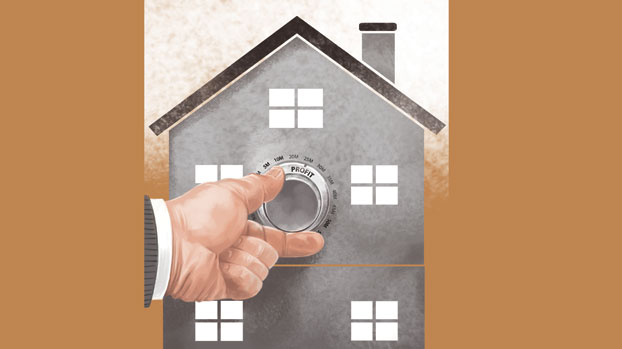
Amid the dazzling array of new projects announced at Cityscape this year, there was an underlying debate doing the rounds — have prices gone too high too fast? Where are the lower cost options for the budget conscious middle-income buyers?
With the slowdown in rents, will first-time buyers choose to rent rather than buy, making the outlook for developers somewhat sombre? Most importantly, have some developers gotten the play book wrong by adding to the supply of the already top-heavy luxury space?
What’s going on? In part, soaring prices over the past couple of years started scaring off first-time buyers, and also encouraged existing owners to put their homes up for sale, thus adding to the inventory. Meanwhile, investors, who have played a key role in stabilising the market, became more cautious. To be sure, this slowdown is good news for home buyers. The recent weakness in real estate investments, including those from developers, will inevitably create opportunities for bargain-hunters as prices drift lower.
However, as we enter an environment of rising interest rates next year, the cost of financing will increase, making things tougher for buyers and investors alike.
Perhaps, more importantly, there has been a debate on the cash-on-cash (COC) returns that developers (especially the private sector ones with little or no track record) are expecting. Historically, in Dubai, developers achieved cash-on-cash returns in excess of 150 per cent, during the boom phase of the cycle that lasted between 2002 to 2008.
In the subsequent bust phase, the fragility of capital structures were exposed as many of these developments stalled. With tougher and more transparent regulations, alongside a recovery in the general economic environment, RERA (Real Estate Regulatory Agency) ensured developments became more sustainable, attracting developers with strong balance-sheets and proof of financial closure.
However, the boom in the property markets in 2012-13 meant price offerings from these developers skyrocketed, in many cases offering them cash-on-cash returns in excess to those achieved in the first boom cycle. This had two important consequences that are being played out today: First, it led to a flurry of offerings by these developers, enticed by the prospect of supernormal profits.
Second, and more important, it led to investor fatigue as investors and home buyers realised these purchases could no longer be offloaded in the secondary markets and/or were not affordable given their current income brackets.
There is a third trend playing out currently in the domestic real estate market; one of rising land prices, as developers and investors alike snap up parcels in anticipation of grabbing profit margins. This trend is expected to continue a while, as the market will arbitrage away these abnormal profit margins.
Even a cursory analysis of developer balance-sheets in the US and Europe reveals that cash-on-cash returns for developers are a more modest 25-30 per cent. These returns are enhanced by adding layers of leverage to balance-sheets.
However these industry cash-on-cash margins ensured that price rises were kept in check as developers quickly reduced prices and/or offered flexible payment plans and in-house developer financing to entice buyers. In recent months, this trend has been visible among Dubai developers as well, and is a further sign that cash-on-cash margins achieved in the past are no longer sustainable.
What this year’s Cityscape has confirmed is that we have entered a buyer’s market again after the flurry of investor activity in 2012-13. Gone are the days when investors queued outside of developer offices eagerly snapping up their latest offerings at any price.
The road ahead will clearly dictate that developers will have to follow suit by reducing profit margins by allowing prices to drift lower, and restoring equilibrium by giving birth and sustainability to the affordable housing space.
The writer is the Managing Director of Global Capital Partners












